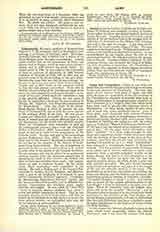

Lampa (LAMPIE, LAPPA), a titular see in Crete, suffragan of Gortyna, was probably a colony of Tarrha. It was taken by storm and almost entirely destroyed by the Romans. Augustus restored it and in consideration of the aid rendered him in his struggle with M. Antonius, he bestowed on the citizens their freedom, and with it the right of coinage. It has been identified with the modern small village of Polis. The episcopal see is mentioned in the “Notitiae episcopatuum” as late as the twelfth and thirteenth centuries. It was reestablished by the Greeks about the end of the nineteenth century; the bishop resides in the monastery of Preveli. Lequien (Oriens Christianus, II, 268) mentions Petrus, who attended the Council of Ephesus, 431; Deneltius, at Chalcedon, 451; Prosdocius, in 458; John, who appealed to Rome against his metropolitan Paul, and attended the Council of Constantinople, 667; Epiphanius at Niewa, 786.
S. PETRIDES

